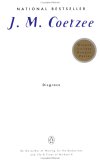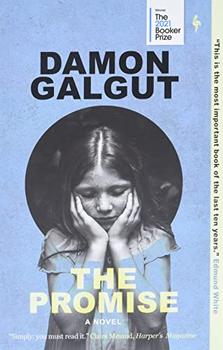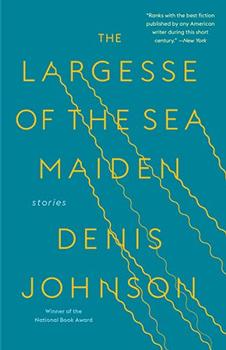Summary | Excerpt | Reading Guide | Reviews | Read-Alikes | Genres & Themes | Author Bio

Written with the austere clarity that has made Coetzee the winner of two Booker Prizes and the Nobel Prize, Disgrace explores the downfall of one man and dramatizes the plight of a country caught in the chaotic aftermath of centuries of racial oppression.
Set in post-apartheid South Africa, Nobel Prize Winner, J. M. Coetzee’s
searing novel tells the story of David Lurie, a twice divorced, 52-year-old
professor of communications and Romantic Poetry at Cape Technical University.
Lurie believes he has created a comfortable, if somewhat passionless, life for
himself. He lives within his financial and emotional means. Though his position
at the university has been reduced, he teaches his classes dutifully; and while
age has diminished his attractiveness, weekly visits to a prostitute satisfy his
sexual needs. He considers himself happy. But when Lurie seduces one of his
students, he sets in motion a chain of events that will shatter his complacency
and leave him utterly disgraced.
Lurie pursues his relationship with the young Melanie—whom he describes as
having hips "as slim as a twelve-year-old’s"—obsessively and
narcissistically, ignoring, on one occasion, her wish not to have sex. When
Melanie and her father lodge a complaint against him, Lurie is brought before an
academic committee where he admits he is guilty of all the charges but refuses
to express any repentance for his acts. In the furor of the scandal, jeered at
by students, threatened by Melanie’s boyfriend, ridiculed by his ex-wife,
Lurie is forced to resign and flees Cape Town for his daughter Lucy’s
smallholding in the country. There he struggles to rekindle his relationship
with Lucy and to understand the changing relations of blacks and whites in the
new South Africa. But when three black strangers appear at their house asking to
make a phone call, a harrowing afternoon of violence follows which leaves both
of them badly shaken and further estranged from one another. After a brief
return to Cape Town, where Lurie discovers his home has also been vandalized, he
decides to stay on with his daughter, who is pregnant with the child of one of
her attackers. Now thoroughly humiliated, Lurie devotes himself to volunteering
at the animal clinic, where he helps put down diseased and unwanted dogs. It is
here, Coetzee seems to suggest, that Lurie gains a redeeming sense of compassion
absent from his life up to this point.
Written with the austere clarity that has made J. M. Coetzee the winner of
two Booker Prizes, Disgrace explores the downfall of one man and dramatizes,
with unforgettable, at times almost unbearable, vividness the plight of a
country caught in the chaotic aftermath of centuries of racial oppression.
 Deanna Wood
There are few writers in English who equal this South African writer's hard
intelligence. Few are as philosophical, or as familiar with the language and the
mosed of post-structural and post-colonial theory...
Deanna Wood
There are few writers in English who equal this South African writer's hard
intelligence. Few are as philosophical, or as familiar with the language and the
mosed of post-structural and post-colonial theory...
If you liked Disgrace, try these:

by Damon Galgut
Published 2022
A modern family saga that could only have come from South Africa, written in gorgeous prose by twice Booker Prize-shortlisted author Damon Galgut.

The Largesse of the Sea Maiden
by Denis Johnson
Published 2019
Twenty-five years after Jesus' Son, a haunting new collection of short stories on aging, mortality, and transcendence, from National Book Award winner and two-time Pulitzer Prize finalist Denis Johnson
The single biggest problem in communication is the illusion that it has taken place
Click Here to find out who said this, as well as discovering other famous literary quotes!